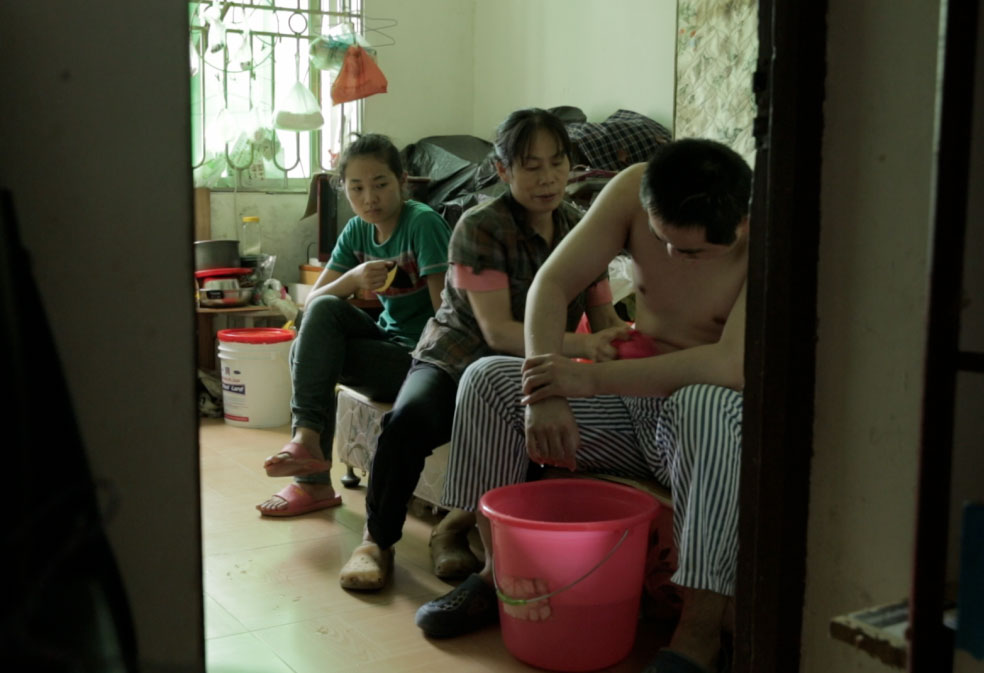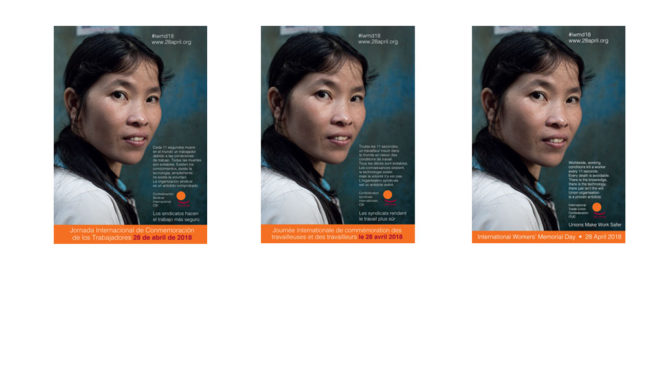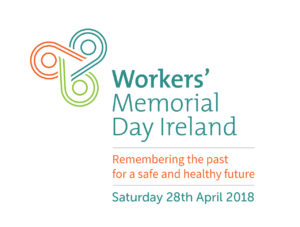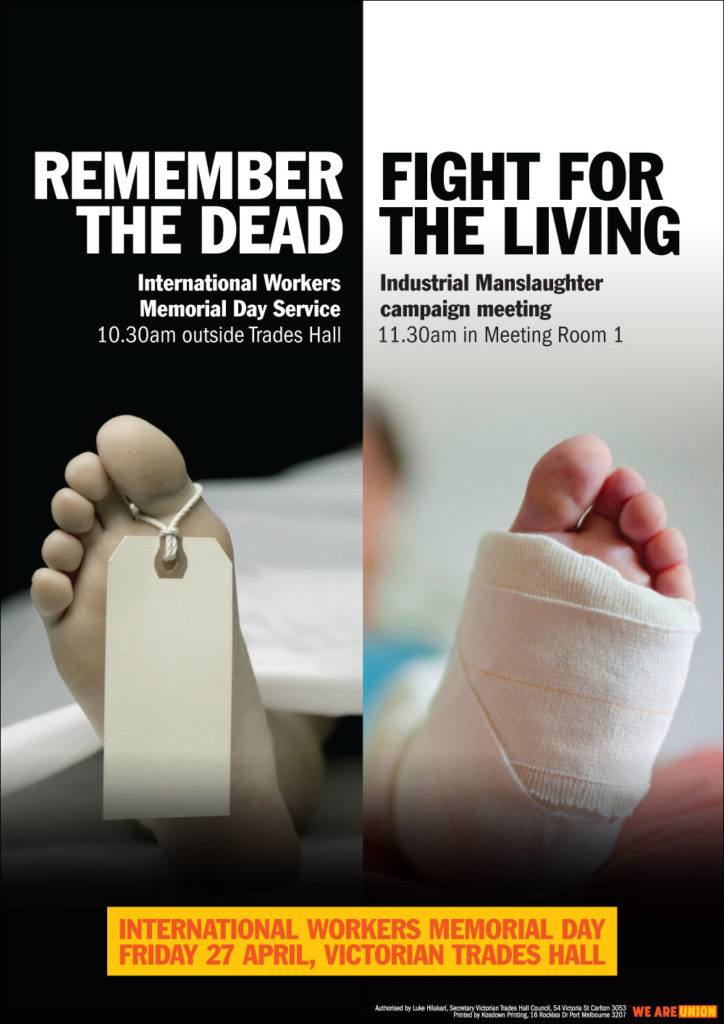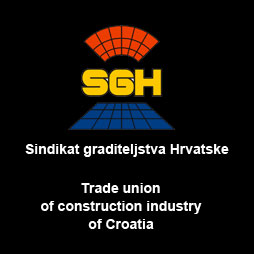Download the poster: Español• Français • English
Download the briefing: English • Deutsch • Español • Français
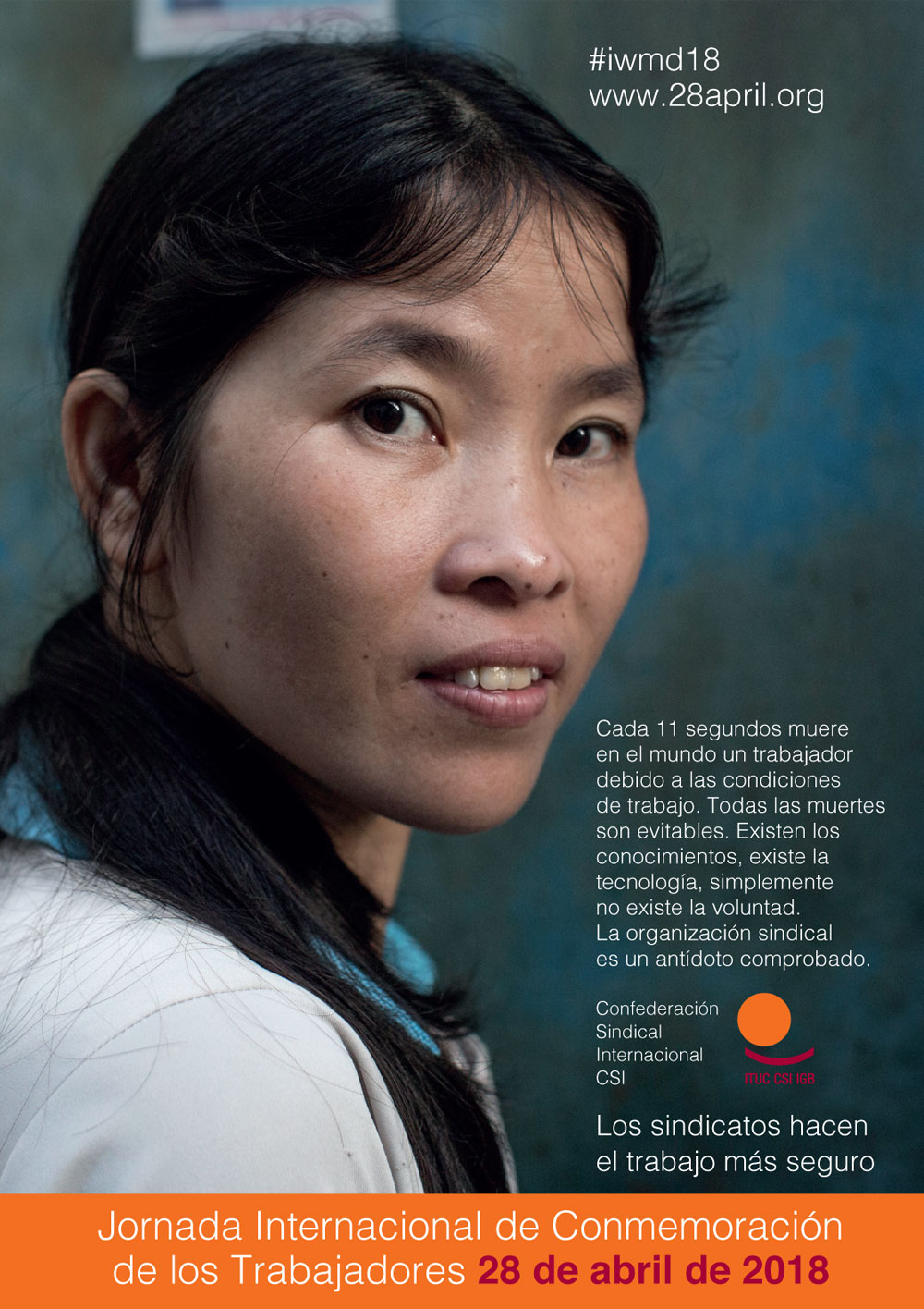
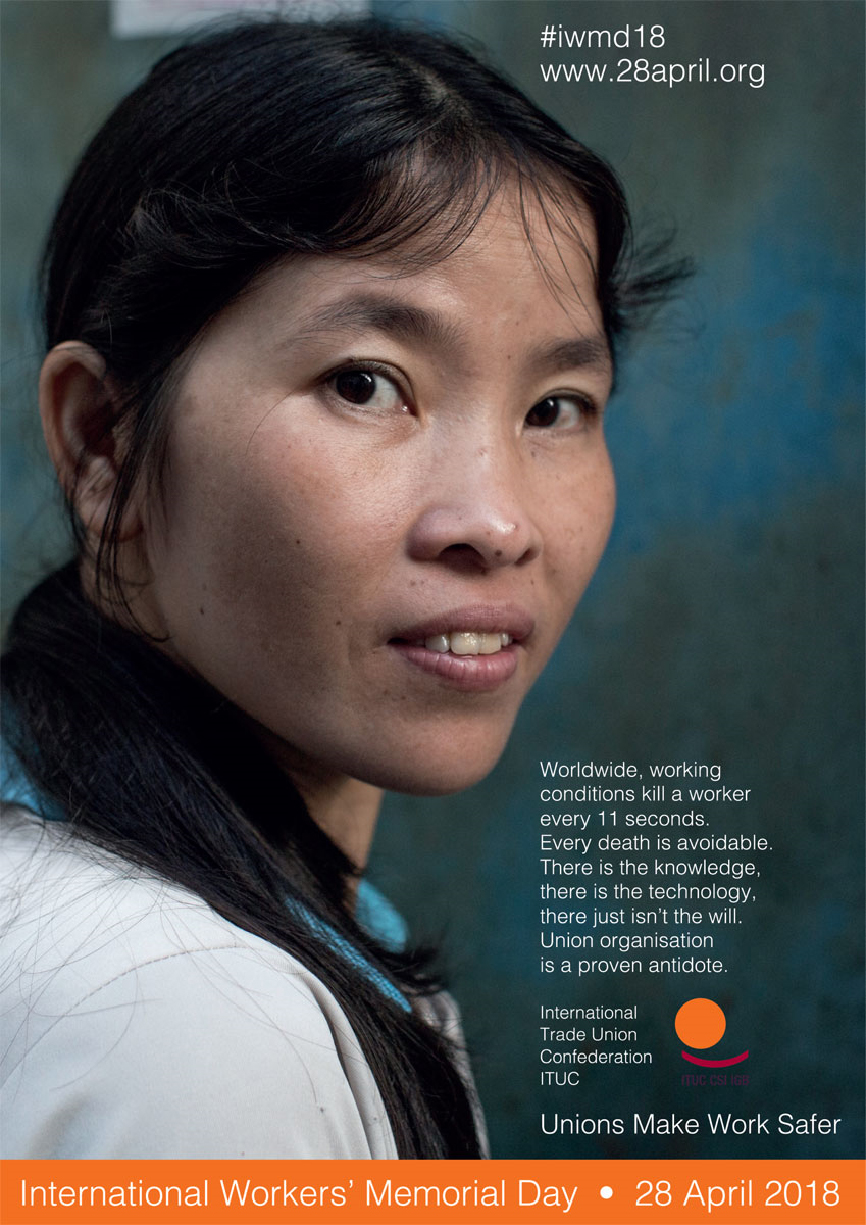

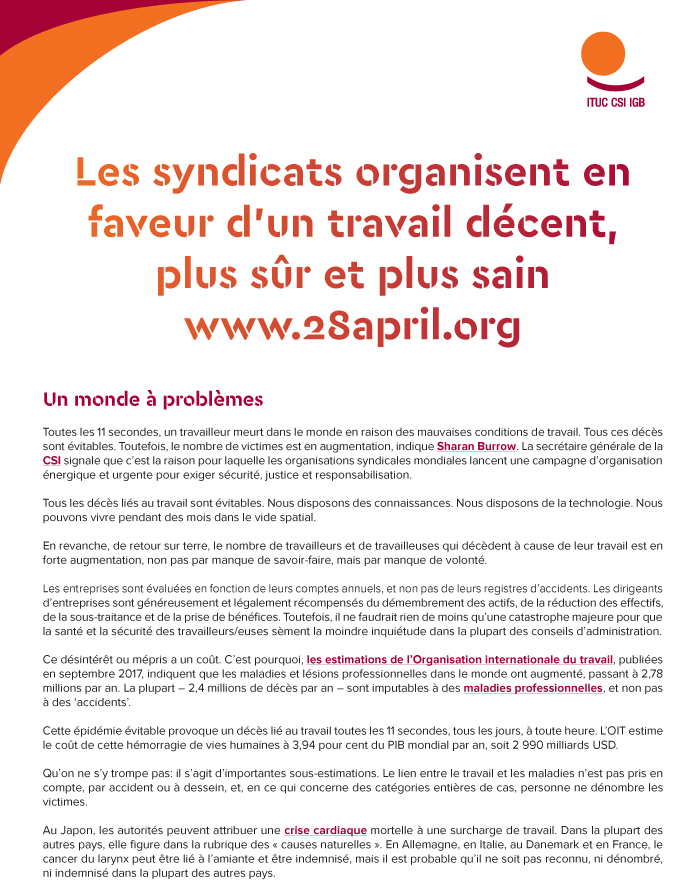 Toutes les 11 secondes, un travailleur meurt dans le monde en raison des conditions de travail. Tous les décès sont évitables. Les connaissances existent, la technologie existe, mais la volonté n’y est pas. L’organisation syndicale est un antidote avéré.
Toutes les 11 secondes, un travailleur meurt dans le monde en raison des conditions de travail. Tous les décès sont évitables. Les connaissances existent, la technologie existe, mais la volonté n’y est pas. L’organisation syndicale est un antidote avéré.
Les syndicats organisent en faveur d’un travail décent, plus sûr et plus sain
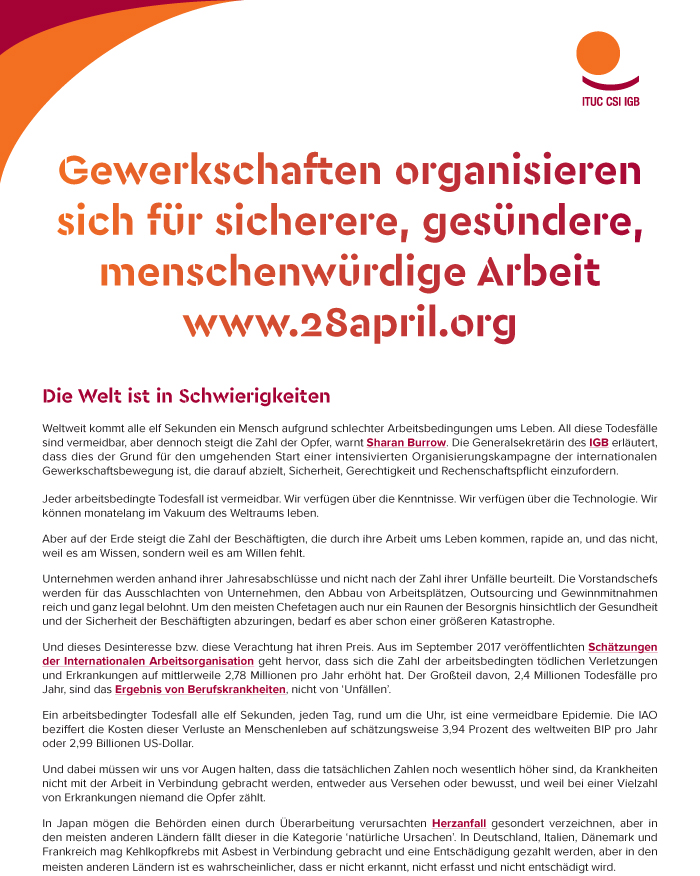 Weltweit kommt alle elf Sekunden ein Mensch aufgrund schlechter Arbeitsbedingungen ums Leben. All diese Todesfälle sind vermeidbar, aber dennoch steigt die Zahl der Opfer, warnt Sharan Burrow. Die Generalsekretärin des IGB erläutert, dass dies der Grund für den umgehenden Start einer intensivierten Organisierungskampagne der internationalen Gewerkschaftsbewegung ist, die darauf abzielt, Sicherheit, Gerechtigkeit und Rechenschaftspflicht einzufordern.
Weltweit kommt alle elf Sekunden ein Mensch aufgrund schlechter Arbeitsbedingungen ums Leben. All diese Todesfälle sind vermeidbar, aber dennoch steigt die Zahl der Opfer, warnt Sharan Burrow. Die Generalsekretärin des IGB erläutert, dass dies der Grund für den umgehenden Start einer intensivierten Organisierungskampagne der internationalen Gewerkschaftsbewegung ist, die darauf abzielt, Sicherheit, Gerechtigkeit und Rechenschaftspflicht einzufordern.
Gewerkschaften organisieren sich für sicherere, gesündere, menschenwürdige Arbeit
 En todo el mundo, unas malas condiciones de trabajo ocasionan la muerte de un trabajador cada 11 segundos. Todas estas muertes son evitables, y sin embargo la cifra sigue incrementándose, advierte Sharan Burrow. La Secretaria General de
En todo el mundo, unas malas condiciones de trabajo ocasionan la muerte de un trabajador cada 11 segundos. Todas estas muertes son evitables, y sin embargo la cifra sigue incrementándose, advierte Sharan Burrow. La Secretaria General de
la CSI indica que es por ese motivo que los sindicatos mundiales están lanzando una urgente y renovada campaña de organización, reclamando seguridad, justicia y responsabilidad.
Los sindicatos organizan para lograr trabajo decente, más seguro y más saludable
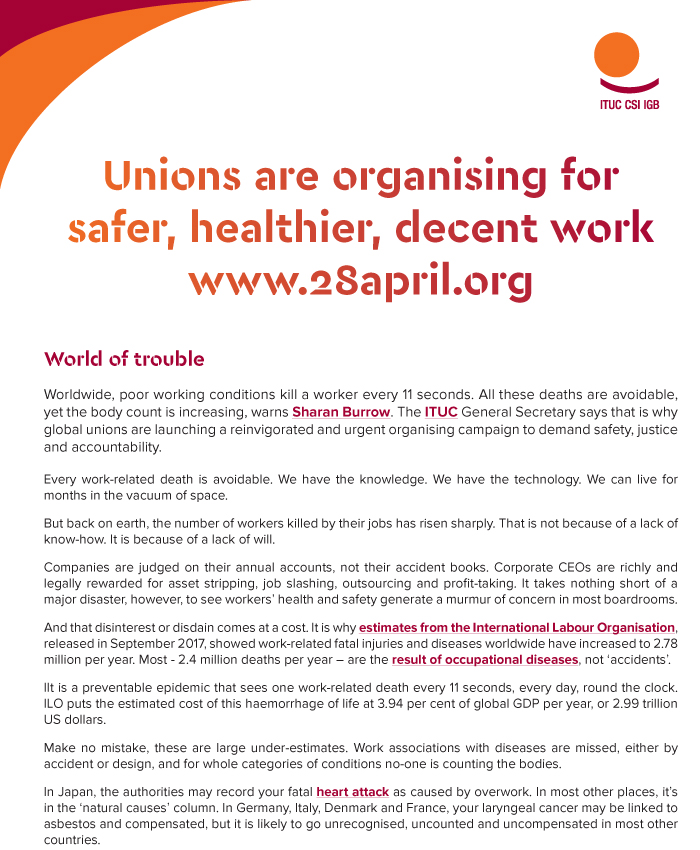 Worldwide, poor working conditions kill a worker every 11 seconds. All these deaths are avoidable, yet the body count is increasing, warns Sharan Burrow. The ITUC General Secretary says that is why global unions are launching a reinvigorated and urgent organising campaign to demand safety, justice and accountability.
Worldwide, poor working conditions kill a worker every 11 seconds. All these deaths are avoidable, yet the body count is increasing, warns Sharan Burrow. The ITUC General Secretary says that is why global unions are launching a reinvigorated and urgent organising campaign to demand safety, justice and accountability.
ITUC – Unions are organising for safer, healthier, decent work
 [translated by Facebook]
[translated by Facebook]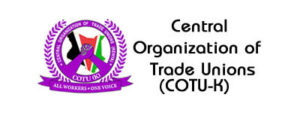 Website:
Website: 
